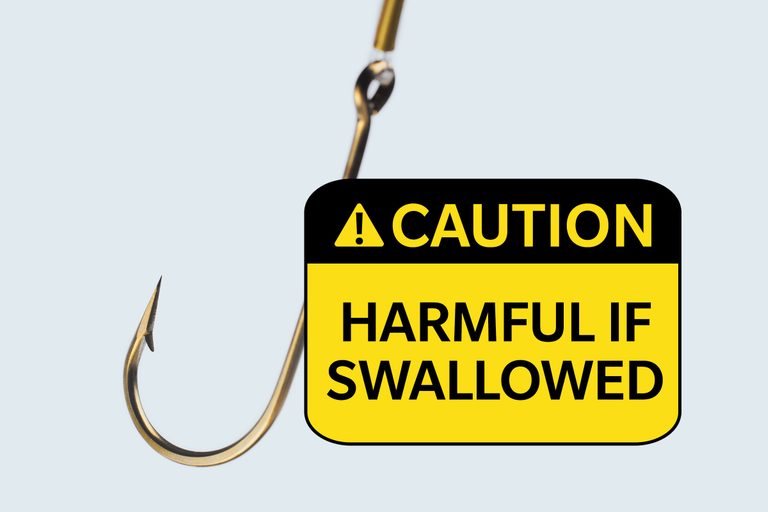Friend Xerxes continues to indulge his columnist habit. This time, he is light-heartedly suggesting a warning label for Christianity.
The idea of a warning label for Christianity does make sense: be prepared to die to self. Be prepared to take up your cross. Be prepared to lose friends and family members. Be prepared to look like a fool to the world.
But Xerxes’s concerns are different.
What immediately leaped out, was “Christianity is not a cure for depression or suicidal impulses.”
I can’t imagine why he says that; it is almost the first thing he says. And it seems to me Christianity is exactly that. Depression and suicidal impulses are a result of perceived loss of meaning. The one thing Christianity does for definite sure is bring meaning into your life.
Whe he was perambulating Palestine, Jesus’s prime preoccupation was casting out devils. What do you think those devils were? The symptoms were often plainly what we would call “mental illness” of various kids.
A Catholic priest of my acquaintance used to say that there were only two choices for any of us: faith, or suicide.
Another of his warnings is almost equally odd:
“Keep Christianity and its doctrinal texts out of the reach of children, as their frontal lobes are not yet sufficiently developed to handle the complexities of Christian teachings.”
The common belief is that we have an obligation to raise children in the faith. And how is it good for children to grow up without a coherent world view?
“But Jesus said, Suffer little children, and forbid them not, to come unto me: for of such is the kingdom of heaven.”
I suspect Xerxes of buying the new atheist argument that teaching children Christianity is abuse.
He the gives a list of authors that, if you are Christian, you should not read, because they would be upsetting. He does not include Marx, or Freud, or Nietzsche, but de Chardin, Tolle, Rohr, Spong, Merton, and Rahner.
It seems an odd list. Merton is surely revered among Catholics. Rahner was an important advisor to Vatican II. De Chardin is more controversial, but was praised by Benedict XVI, who is not generally considered unorthodox.
It is hard to figure out what point Xerxes is trying to make. That true Christianity requires you not to think? That Catholicism is an abomination on Christianity as a result?
But let’s polish our brass tacks. As what seems the climax, Xerxes wars that Christianity will cause “blindness to other faiths, intolerance of other viewpoints, and addiction to biblical proof-texting.”
Any particular viewpoint is intolerant of other viewpoints that contradict that viewpoint. Even viewpoints that claim to be “tolerant” are intolerant of viewpoints they declare “intolerant.” And we cannot escape having a viewpoint. The issue is whether we claim any right to impose or enforce our viewpoint over others. Christianity stands out for not doing this. In Christianity everything is voluntary. This is a contrast to most competing viewpoints. Including such creeds as secular humanism, liberal democracy, Marxism, Islamism, or science.
Meaning the net effect of Christianity is the opposite of what Xerxes claims.
On the issue of being “blind” to other faiths, Christianity and Christians would automatically have more understanding of and sympathy with a Hindu, Muslim, or Buddhist viewpoint than would a materialist, a Marxist, or a secular humanist.
Accusing Christianity of causing a problem of Biblical proof-texting is like accusing the Constitution of causing a problem of misinterpreting the US Constitution. The solution would not be to abolish the Supreme Court. In this case, it would be to become Catholic, and rely on such expert advice. Unless, of course, your problem is not with proof-texting, but with the authority of the Bible itself.
“Mainstream Christianity is not recommended if you have religious pre-conditions, such as participation in Hare Krishna, charismatic Pentecostalism, or any Presbyterian court.”
You can be a Catholic, the ultimate mainstream of Christianity, and a Pentecostal. I am. It is called the Charismatic movement. There is no theological conflict here.
More broadly, any kind of religious background (“pre-condition”) is a better segue to Christianity than none.
“Do not be misled by Scientology, Eckankar, or Theosophy,” Xerxes adds.
If these cults are misleading, they are no more likely to mislead Christians than non-Christians, since they do not claim to be Christian. A better fit here could be “Do not be misled by Gnosticism, the prosperity gospel, liberation theology, original blessedness, or feel-good pop psychology masquerading as Christianity.”
“Take Christianity exactly as prescribed – weekly.”
The prescription is moment by moment. “Pray without ceasing.” A “Sundays-only“ Christian is not the model. And there is no such thing as an “overdose” of Christianity. The whole concept of “religious extremism” is profoundly wrongheaded. The average is not the ideal.
Is Xerxes really, as he claims, a Christian?














No comments:
Post a Comment